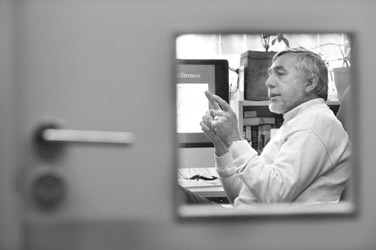Context
In France and in latin countries in general, there is a widespread resistence to the idea that any aspect of human behavior could be controlled by biological mechanisms and in particular by genetic influences. Correlatively, it is broadly assumed that homosexuality, and thus more broadly sexual orientation, is determined either by early relationships with the parents (the Freudian Oedipus complex that would not be properly resolved) or more generally by social interactions that would condition the gender and sexual orientation of an individual (gender theory).
More than 30 years of work on the biological mechanisms of sexual differentiation and the contact with many scientists working in this field mainly in the United States convinced me that sexual orientation is largely one aspect of sexual differentiation controlled by the early action of gonadal hormones (testosterone and estradiol) or more directly by genetic influences. This is clearly demonstrated in animal models and correlative evidence strongly suggests that mechanisms identified in rodents and other mammals are active in humans. As a biologist, I also have a very hard time understanding how evolution coudl have left the control of sexual orientation to mechanisms as highly variable as the interactions with parents and peers when this feature has such a crucial role in reproductive success and this transmission of genes to the next generation. Control of this feature must be « hard-wired »!
In 2006, Stephane Clerget, a psychiatrist based in Paris (FR) published a book claiming to present a synthesis between biological and psycho-analytical (Freudian) explanations of homosexuality (« Comment devient-on homosexuel, 2006, J.C. Lattes, Paris). Upon reading, it became clear however that this book was refuting all biological interpretations and was in fact an apology of psycho-analytical explanations. I then felt compelled to write a rebuttal to this book and this was published in 2010 under the title: « Biologie de l’homosexualité: on nait, on ne devient pas homosexuel » (Mardaga, Wavre BE 2010).
The book raised a lot of interest and discussion in the French media (written press, radio and TV). An english edition was latter published by Oxford University Press (2011, NY USA: "The biology of Homosexuality"). These pages summarize the currently available scientific data that suggest, if they do not prove, the existence of biological mechanisms determining or at least strongly influencing sexual orientation and point to links in the media where my books, conferences and interviews on this topic are presented.
